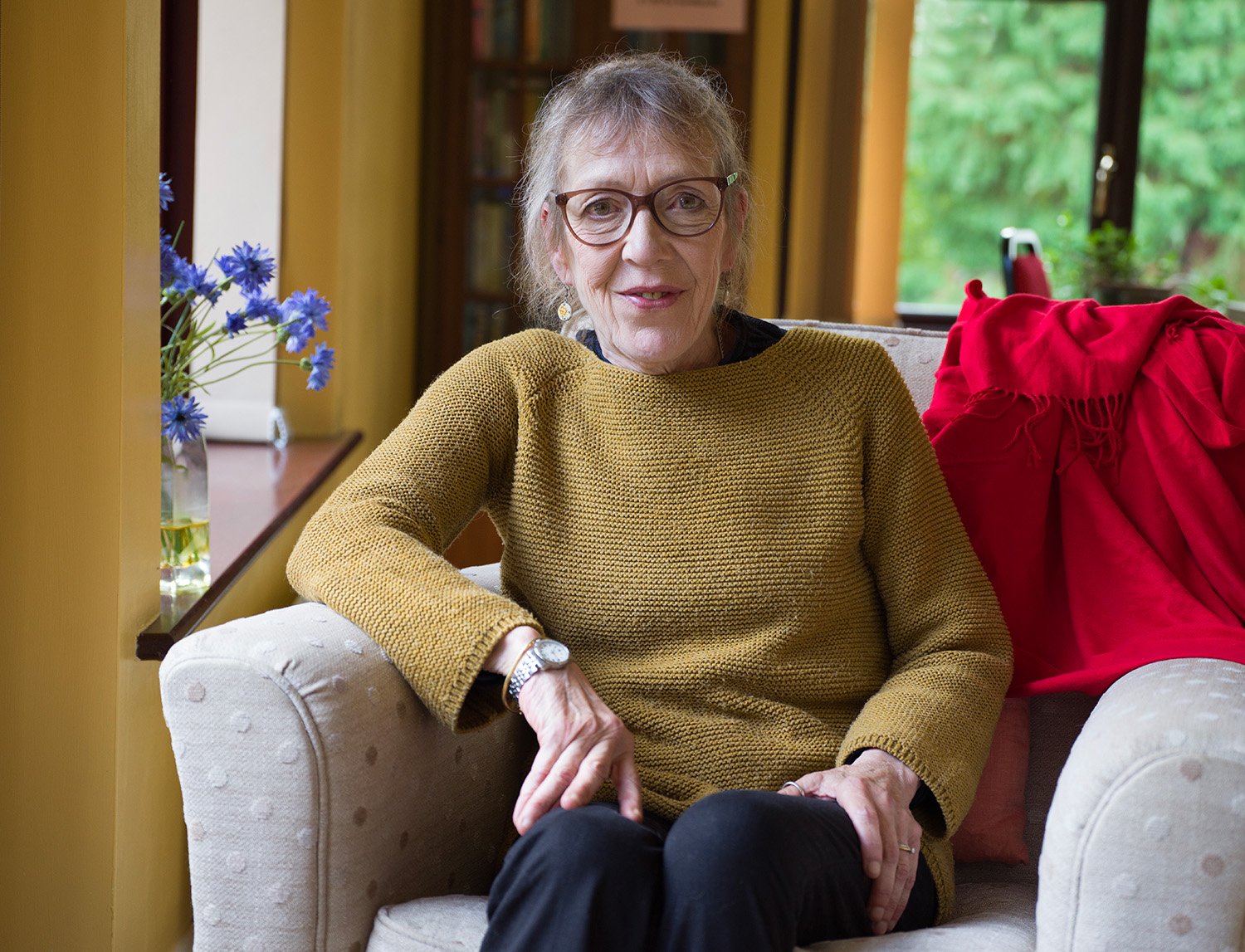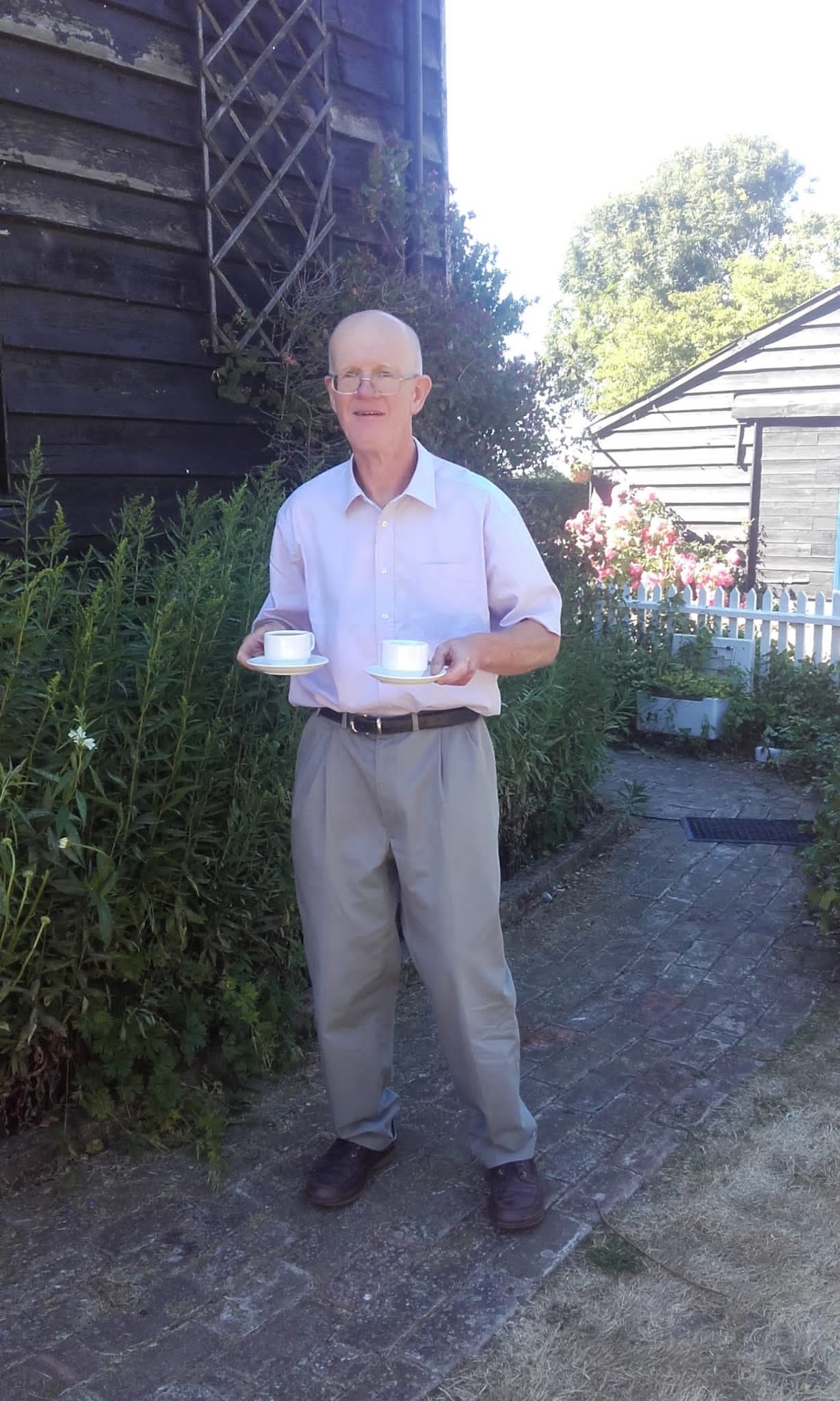What matters most?
Hattie
Hattie and her husband John lived on a smallholding in Powys. They met during a rave in the early 90’s and stayed together.
“When we got engaged, a friend of mine asked if he made me laugh five times a day. He did! John was very witty, and very good fun. He was extremely intelligent, too clever by half. He was always busy and had loads of things on the go. He wanted to grow fruit trees then he started making pickles and jams etc. When he did something, he did it incredibly enthusiastically. He was absolutely lovely.”
Initially John trained as a vet before moving into other jobs. “He was a very good surgeon, but he didn't particularly have a bedside manner. You know, ‘your cat needs putting down! Sorry.’ That's possibly part of his spectrum. He did an online test once and was very chuffed it said he was on the spectrum.”
Diagnosed with prostate cancer and bladder cancer, the couple lived with it overshadowing their lives for 10 years. “A friend stopped me in the street and said, Oh, you're so lucky. You had John for 10 years. But it didn't feel like that. It was 10 years where time went by and we weren't perpetually worried, but we did get worried. It was July 22 when his PSA (Prostate-specific antigen) levels had gone through the roof. I think he knew then that he was sort of time-limited. He had six months of chemotherapy, but that really knocked him about, and he regretted having it in the end. But it meant he did stuff that he wanted to do. Even though he did sort an awful lot out, I just can't believe how much you're expected to do when you're in a state of grief. It amazes me.”
In December 2022 Hattie noticed that he had started to deteriorate. By April John was moved to St. Michael's Hospice in Hereford. “The whole time I stayed there with him. It was a manic time because I'd drive home and do the farm and things during the day and come back in the evening to be with him overnight. The staff there were really wonderful.” The travel to and from the hospice and the running of the farm was a juggle but Hattie had no other options. Not being a confident driver and having to make the hour and a half journey to and from Hereford was a struggle. John wanted to get back home and she was trying her hardest to get things in place so this could happen. “In the end, we did get him home. We hired a private nurse, which was going to cost a fortune. He came home on a Friday and he died on the Sunday. But he got home!”
The hospice was a precious time for the couple despite lack of sleep at times “The nights were a bit riotous because he had these crazy dreams, the cancer had spread and he had a huge tumour in his neck. I think it was a combination of that and the medication that gave him these incredible dreams. Quite often he’d wake me up and tell me and they were really quite interesting dreams, sometimes not nice. One horrible dream I remember when I woke up and he just had tears rolling down his face. He dreamt that Hereford Hospital had written to him and said he was getting better. I can really understand why you would have that sort of dream. That was one of the most upsetting nights for me.”
The time in the Hospice was difficult for Hattie despite the staff being great. If John needed to be catheterised they would send him to A&E as it couldn’t be done at the hospice This was not a good experience for the couple “We had to sit in plastic chairs, bearing in mind the cancer had spread to his bones. He was desperately uncomfortable. We sat there all night. That was pretty miserable. It was a difficult place to be, more so for me than John because I'd see a lady in the next room one day and then the next she'd be gone. Someone else would be in and then they'd be gone.”
For John, he never wanted to end up in hospice “He said I don't want to end up in a hospice with tubes coming in and out and that's exactly what happened. I can't say I feel guilty about it, but the day that the palliative nurse suggested that he needed to go to the hospice. I felt like I was letting him down. That was the worst day. I think it was worse than the day he died. I felt like I couldn't protest because I knew it was the right thing. He'd lost most of his mobility and I was having a hell of a struggle you know getting him comfortable etc.”
Hattie is happy that they found a way to make the hospice stay work and that she was able to spend her nights with him. “He hated being on his own there at nights. I think he only did two nights alone in the whole six weeks. The hospice made that possible. They moved a bed in for me next to his. It was very important that I could share the nights with him, especially when he had these crazy dreams.”
Grief is hard for all, and people take comfort where they can. For her, it was having the time to prepare for what would inevitably happen with John. “It's strange that in March our neighbour had a heart attack and died. I don't know his wife particularly well, but I think about her. I think what's worse, spending the best part of the year kind of nursing somebody or for death to be sudden? I decided that for the person who's dying suddenly is best. But for me, even though a lot of it was so awful, I was preparing all the time. I think it must have helped me. You start your grieving before the death. I think about the wife and I think out of the two of us, I'm the one who's better off.”
“I think people would remember John for his wit, he was so incredibly witty, or his endless projects, he always had something new on the go so I think he'd be glad to be remembered that he made a huge effort with his life to live it. He really did. He'd give most things a go like he joined a male choir, he got chucked out because he couldn't sing, but he wanted to have a go so he wouldn't let that sort of thing defeat him.”
After the couple moved into the farm, on their wedding anniversary, John planted a rosebush to celebrate. It blooms every year. On the Sunday that John died, Hattie cut a rose from their bush and put it in a vase on a table next to where John was lying. “I've done it every Sunday since. Our rosebush has done amazingly well. It's still in flower now four months later. I'll be quite sad when it stops blooming. I suppose if I wanted to, I could start it up again next year. But maybe that'll be enough that I've done it this time around. Maybe I'll want to do something different.”
“When he first died, I kept thinking about all the awful things, but I have noticed over time, that there are nicer memories coming back now. His voice was very different at the end, and in the early weeks, I couldn't get his voice which I found really difficult to deal with. We were married for 30 years and I couldn’t hear his voice. I kept ringing the answering phone. I've got little video clips of him when we were lambing and things from our phones too, so I've got his voice back now.”











